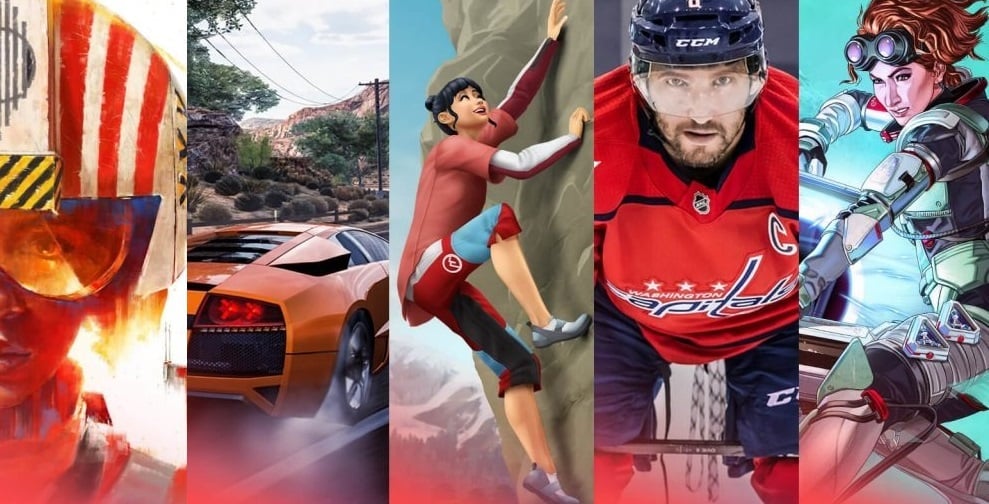I like doing the dishes. I consistently lament, even ten years on, that my spouse purchased a dishwasher. I actually benefit from the mundane course of of constructing a unclean plate get clear, and my palms are heat. It requires solely probably the most fundamental ability, however there’s a relentless sense of progress, of attaining one thing, and on the finish of it a pile of good, clear crockery. Which is to say, I get it, I’m completely conscious of all the problems, however once I hear a brand new recreation has a colossal map lined in icons to clear, I really feel a way of heat happiness.
I’ve but to play Ghost of Yōtei on account of its not having been launched but, although Ethan’s shared some thoughts on his time with it to date. However as I look by means of the critiques, the themes I see recurring are these (possible very rightly) criticizing the sport for what Ethan calls the “pleasure and the irksome strain of obsessive completionism unique to games.” I learn that Yōtei tries tougher to make the fields of icons extra opaque, the repeated actions and experiences a extra pure a part of its world, however after all nonetheless completely leans on them. I see William Hughes’ fantastically furious AV Club review describing these as “the nine million chores waiting to intrude on [Atsu’s] quest for solitary vengeance.” In Chris Tapsell’s superbly considered Eurogamer review, he notes, “Once again, sidequests amount to helping nameless NPCs with comical busywork that inevitably ends in killing six-to-twelve bad guys.” And I feel: “Ooh, goodie!”
I do know, it’s not OK. Individuals like me, expressing ideas like this, are solely encouraging the piping of sludgy pink goo into our gaming lives. However I feel there’s one thing in that mundanity inside some video games. I don’t assume it’s excessive artwork, nor certainly even to be inspired. However I do kinda find it irresistible.
I’ve just lately been very taken with a 2021 survival recreation known as Dysmantle. It was added to Google’s Play Move, so I put in it on my pill, and spent many, many glad hours taking part in this super-simple, ridiculously repetitive recreation. It’s about taking up area after area of a sprawling map, killing the zombies inside, and crafting higher variations of all of your instruments as you go. I don’t wish to be disparaging of it, as a result of like I say, it’s introduced me hours of delight. However it’s…not excessive artwork? (This explicit recreation really has an entire lot extra going for it than a lot of its kind, with shock little twists, hidden mini-games, and an enjoyably foolish story, and there’s a motive it has 4,600 “very positive” critiques on Steam. I’m decided to not throw this below the bus.) However no matter its deserves, it’s the busywork that occupies me right here.
The identical is true of so many Ubisoft video games, after all. Ubisoft’s open-world components has been the first goal of the ire some really feel for the format for a few years, from Far Cry to Murderer’s Creed to Watch_Dogs. All of us roll our eyes on the 83 billion icons, questioning whether or not we actually wish to collect each single lacking butterfly wing or no matter it could be. However I secretly do. I secretly love gathering all of the lacking butterfly wings. There’s this soiled map, and I could make it clear. It requires solely probably the most fundamental ability, however there’s a relentless sense of progress, of attaining one thing, and on the finish of it a pleasant clear map.

In some ways, I consider video games like Ghost of Yōtei and Far Cry 6 as rather more like PowerWash Simulator than like, say, Loss of life Stranding or The Witcher 3. I adore PowerWash Simulator, clearly, given the opening assertion of this piece. It’s fairly actually a recreation about making soiled issues clear, with minimal ability, however a relentless sense of progress. That’s the whole conceit, it’s the idea distilled into its purified type. I’ve purchased all of the DLCs on Xbox, simply so there are extra mucky issues to make shiny and new, quite than as a result of I’m significantly enamored by their tie-in theme. And I genuinely assume that it’s the identical sense of rewarding, mundane progress that motivates me there as drives me in video games like Ghost of Tsushima and Horizon Zero Daybreak to eschew the principle story for hours at a time, simply to tidy up the map.
Hell, I’m replaying Metroid Dread for the time being (I’ve simply reached the ultimate boss, and may’t end the third stage, and am cross), and I spotted that the second I received the double-jump, I used to be (oh god I’m so embarrassed to be sharing this) much less enthusiastic about now with the ability to attain beforehand inaccessible areas than I used to be that I’d now be capable of paint in all of the backgrounds on the minimap. I want I had been joking. I used to be like, “Oh yes, now I can finally fill in those few remaining squares in all the save rooms!” That’s not OK. I’m not OK.
However it’s that very same ridiculous a part of me that sees these critiques of Yōtei and thinks, “Yup, you’re absolutely right to call that out. That’s crappy. But before, I wasn’t sure I wanted to spend $80, and now I’m certain I do!”
So please, I’m inviting you to sentence me. In pitching this text, Kotaku‘s mighty Carolyn Petit responded so completely. “I think that’s a fine argument to make and you can definitely write it! I’m just saying that I’m too much of an ‘Art must be the axe for the frozen sea inside of us!‘ person to really champion video games as comfort food myself.” And I believed, god, sure, she’s proper. I want I had been that axe-wielding hero, combating for artwork in a world of pasty sludge! And you understand, to a point I’m! I dedicate as much of my work time as I’m able to writing about obscure, weird and intelligent video games, championing the tiny indies with large concepts. I do have a little bit of an axe! But in addition, no, I really like placing that weapon down, as a result of it’s so bloody heavy, and I’m drained, and I simply wish to slouch on the sofa, be a part of “the camp of willing lobotomization” as Tapsell so completely places it in his Eurogamer overview, and make the soiled plates get clear.





